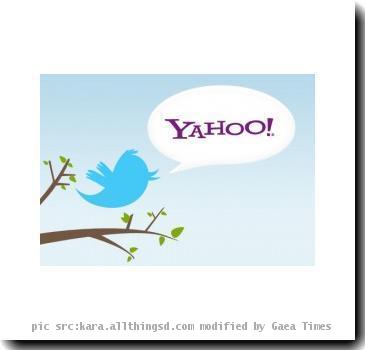Tweeters in Japan fall silent in election campaign over what critics call outdated Net rules
By Yuri Kageyama, APWednesday, June 30, 2010
Tweeters in Japan fall silent in election campaign
TOKYO — Japan is in love with Twitter with one notable exception: political campaigns.
The Twitter accounts of most candidates have gone silent in the run-up to parliamentary elections on July 11. The reason: strict laws regulating Internet use. Even voters are banned from tweeting or blogging about a campaign.
This in a country that set a record of 3,283 tweets per second after a World Cup victory last week, surpassing the 3,085 when the Los Angeles Lakers won the NBA championship. Twitter Inc. estimates Japanese send nearly 8 million tweets a day, about 12 percent of the global total.
The election laws, which also limit posters and TV air time, are meant to give a chance to less well-financed candidates. But in the Internet era, the restrictions deprive them of cheap tools that would make campaigns more democratic, some critics say.
“As long as we ban Internet campaigning, Japanese politicians won’t mature, and voters also can’t mature,” said Masahiko Shoji, a leader of a movement to use the Internet to promote democracy.
Attempts to change the law have met resistance from old-guard lawmakers, said Shoji, an assistant professor at the International University of Japan.
Elsewhere, politicians from President Barack Obama to Venezuelan President Hugo Chavez have embraced Twitter. Russian President Dmitry Medvedev sent his first tweet last week from Twitter headquarters in San Francisco, exchanging greetings with other heads of state, according to Twitter spokesman Sean Garrett.
The company is hiring a Washington, D.C., representative to promote Twitter’s use in politics and hopes to expand the initiative worldwide, he said.
“Obviously there is a lot of potential for policymakers, government agencies, politicians of all stripes to use Twitter and to connect with their constituency,” Garrett said during a visit to Tokyo this week.
Japan’s former Prime Minister Yukio Hatoyama tweets, as do more than 100 candidates for the July 11 upper house election. Almost all are refraining during the official campaign period for fear of running afoul of the law.
“It makes absolutely no sense at all,” said Tomoya Sasaki, senior operating officer of Digital Garage, which supports Twitter’s operations in Japan.
To skirt campaign rules, some people are tweeting about issues, such as U.S. military bases in Japan or an outbreak of foot-and-mouth disease among livestock, he said.
Campaigning in Japan is dominated by vans with loudspeakers that zip around, screaming the name of the candidate over and over and begging for votes.
“Japanese people need more information, and they need to be able to debate the issues,” Shoji said. “People have the right to make intelligent choices, not just pick someone by a name.”
Lawmaker Kenzo Fujisue, who is such an avid tweeter that he has earned the nickname “Twitter legislator,” is symbolically defying the ban by posting links to audio clips, because voice is not covered by the election law.
His recordings are cautious and mostly chitchat, though, reflecting uncertainty about the legal limits. One is just an instrumental music piece.
Taichi Irie, a freelance programmer who has created a website that shows live tweets of more than 560 politicians, said that Twitter is mostly used in Japan for personal posts or photos. It will take time to develop as a platform for political debate, he predicted.
“I think Twitter use should be open,” he said. “But it is also important we are careful to pursue the true potential of what Twitter can mean in politics.”
Online:
Japanese politicians on Twitter: politter.com/en/
Tags: Asia, Campaigns, Computing And Information Technology, East Asia, Internet Technology, Japan, Online Media, Tokyo, World cup

